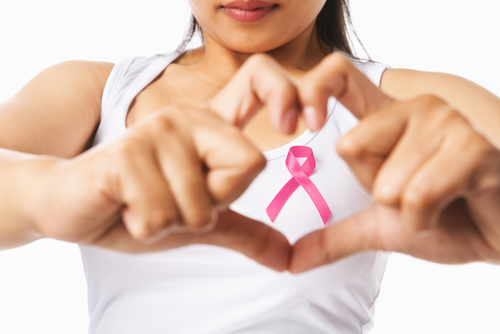Even the most routine medical appointments can cause anxiety, but breast cancer can put anxiety into overdrive. If you or someone you love has just been diagnosed, here’s what you need to know:
Expect to be Overwhelmed
I was shocked when it happened to me, when I felt my large, hard lump and then heard it connected with cancer. People were using terms I had never heard of, speaking with a sense of urgency.
I needed to make decisions based on information I didn’t understand, and I was trying to come to grips with a new reality. Suddenly, I wondered if my little girl would grow up without a mother, how my husband would cope with my illness, and what cancer would do to my family’s finances.
Remarkably, these panicky feelings abate. Feeling overwhelmed is part of the experience, but – heart’s honor – it gets easier.
Get Help
Like many women, I’m more comfortable giving help than asking for it. But the reality is, a cancer diagnosis means you need a lot of help.
Someone should come with you to every appointment, a trusted friend who can help you digest the onslaught of new information. Your advocate will be additional eyes and ears and can ask questions you haven’t thought of, and speak on your behalf when you just can’t do it yourself.
This person needs to be compassionate, organized, and smart. I am fortunate because for me, this person is my husband. An advocate is essential to your survival, and my advice is to find one — even if you have to hire someone.
Ask, Ask, and Ask Again
After my diagnosis, I met with a doctor who said my need for surgery was immediate. He wanted to perform a mastectomy the next morning. My thoughts were spinning, but my advocate was clear-headed. He asked lots of questions and insisted that I get a second opinion.
Because of his persistent questioning, we found a completely different approach. Instead of getting a mastectomy at a small, rural health facility, he fought to get me admitted into the tumor board at Stanford where I had access to more resources and expertise.
My new team suggested neoadjuvant therapy, a method that uses chemo to shrink the tumor first and then proceeds with surgery. As part of the revised plan I also underwent tests, which determined that cancer had spread to my lymph nodes and sternum. That information was invaluable.
Asking questions, relentlessly, is critical with breast cancer. Keep asking until you understand the answers and you get the information you need.
Be Assertive
The day after I discovered the lump in my breast, I saw a doctor who told me not to worry about it, that my symptoms didn’t meet the characteristics of cancer.
I decided to have a mammogram anyway. The problem was that, without a doctor’s intervention, it takes a long time to get an appointment. Weeks passed.
I know now that I should have insisted that the doctor intervene on my behalf.
Had I been more assertive, perhaps my cancer would have been caught earlier, when it was less dangerous, before it had spread to other parts of my body.
Clearly, the doctor made a mistake in my care, but the fact is, I did too. In regard to my health, I’ve learned to be more assertive, and I’ll never make that mistake again.
Believe
Cancer is a marathon of endurance, and you need faith in something bigger than yourself to get through it. My faith in God helps me immeasurably, but along the way I’ve met other women who find strength in art, nature, and meditation.
Find the connection that works for you and make it part of your survival strategy. With dedication to faith, wherever it comes from, cancer can actually bring moments of profound beauty. Even my doctor at Stanford, a distinguished scientist, shared his belief that patients with faith in a higher power have better outcomes.
Nothing can prepare you for learning you have cancer. But knowing what to expect can help, and all of us can share the wisdom we gain to ease the way for the ones to come.
Note: Breast Cancer News is strictly a news and information website about the disease. It does not provide medical advice, diagnosis, or treatment. This content is not intended to be a substitute for professional medical advice, diagnosis, or treatment. Always seek the advice of your physician or other qualified health provider with any questions you may have regarding a medical condition. Never disregard professional medical advice or delay in seeking it because of something you have read on this website. The opinions expressed in this blog article are not those of Breast Cancer News, or its parent company, BioNews Services, and are intended to spark discussion about issues pertaining to the disease.

